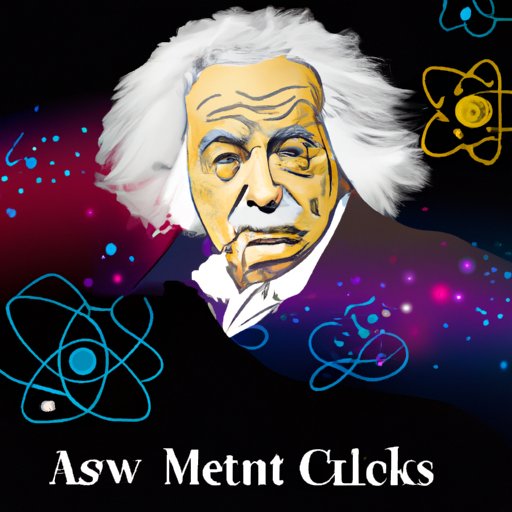Introduction
Albert Einstein is one of the most renowned scientists in history. He is best known for his theory of relativity which revolutionized our understanding of physics. He has also made major contributions to quantum mechanics, cosmology, and other areas of science. In this article, we will explore Einstein’s life and his contributions to science.
Exploring Einstein’s Theory of Relativity
Einstein’s most famous contribution to science was his theory of relativity. This theory changed the way physicists viewed the universe and provided a new framework for understanding the laws of nature. According to Einstein, the laws of physics are not absolute but are relative to the observer’s frame of reference. This means that the same physical phenomenon can appear differently depending on the observer’s perspective.
The implications of this theory were far-reaching. For example, it showed that time is not absolute but is relative to the observer’s speed. This means that two observers traveling at different speeds will experience time differently. This has been verified by experiments such as the Hafele-Keating experiment in 1971, which showed that time moves more slowly for an observer who is moving faster than another observer.
Einstein’s theory of relativity also showed that mass and energy are interchangeable. This is expressed in the famous equation E=mc2, which states that energy (E) is equal to the mass (m) multiplied by the speed of light (c) squared. This equation showed that small amounts of mass can be converted into huge amounts of energy, which has been used to develop nuclear power.
Examining the Impact of Einstein’s Work on Modern Physics
Einstein’s work had a significant impact on modern physics. His theories of relativity, quantum mechanics, and cosmology laid the foundation for much of the research being done today. His ideas about the nature of space and time led to new ways of thinking about the universe and how it works.
Einstein’s work also helped to shape our understanding of gravity. His theory of general relativity showed that gravity is the result of the curvature of space-time caused by the presence of matter. This has been verified by observations of gravitational waves and the bending of light around massive objects such as black holes.
Einstein’s work also influenced other areas of physics. His ideas about the structure of atoms and molecules led to the development of quantum mechanics, which has allowed us to understand the behavior of particles on an atomic level. His work has also been influential in the fields of thermodynamics and statistical mechanics.
The Legacy of Einstein’s Contributions to Quantum Mechanics
Einstein’s contributions to quantum mechanics were groundbreaking. His work showed that particles behave differently on an atomic level than they do on a macroscopic scale. This led to the development of wave-particle duality, which states that particles can act like both waves and particles depending on the circumstances. This has allowed us to better understand phenomena such as tunneling and entanglement.
Einstein also developed the concept of the uncertainty principle, which states that it is impossible to know both the position and momentum of a particle at the same time. This has had a profound impact on our understanding of the subatomic world and has shaped the way physicists think about the behavior of particles.
How Einstein Revolutionized Our Understanding of Space and Time
Einstein’s work on relativity also revolutionized our understanding of space and time. His theory of special relativity showed that space and time are intertwined and cannot be separated. This has led to new ways of thinking about the universe, such as the idea that space and time are curved and that the universe is expanding.
Einstein’s work on general relativity also showed that gravity is the result of the curvature of space-time. This has had a huge impact on our understanding of the universe and how it works. It has also led to the development of new technologies such as GPS and satellite communications.
Conclusion
Albert Einstein was one of the most influential scientists in history. He made major contributions to the fields of relativity, quantum mechanics, and cosmology. His work revolutionized our understanding of the universe and laid the foundation for much of the research being done today. His legacy will continue to shape our view of the universe for generations to come.
(Note: Is this article not meeting your expectations? Do you have knowledge or insights to share? Unlock new opportunities and expand your reach by joining our authors team. Click Registration to join us and share your expertise with our readers.)
